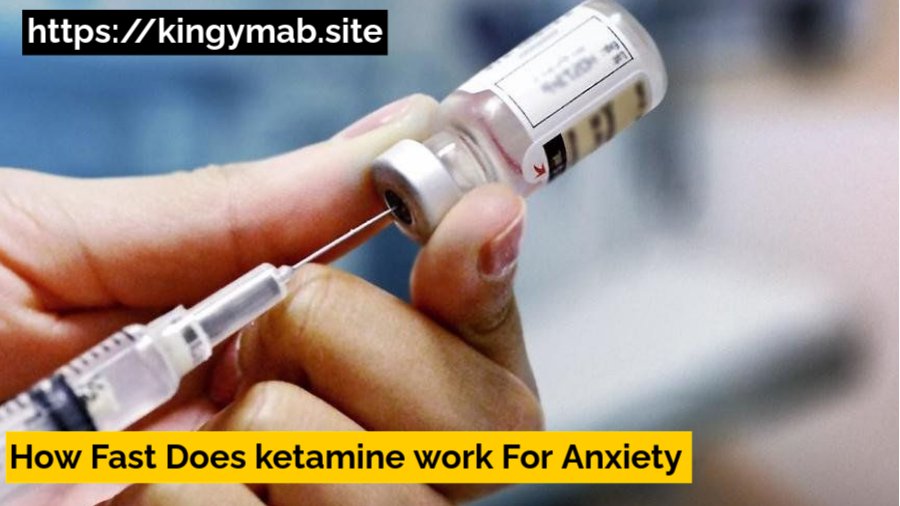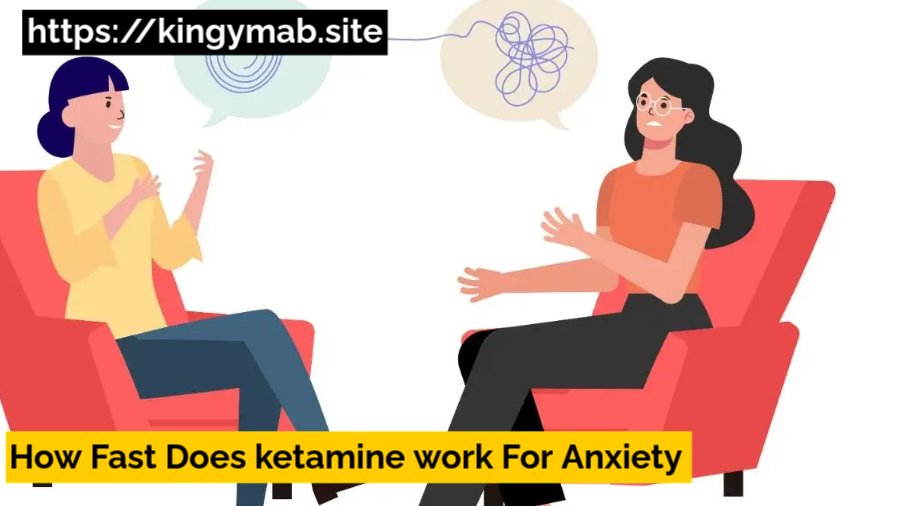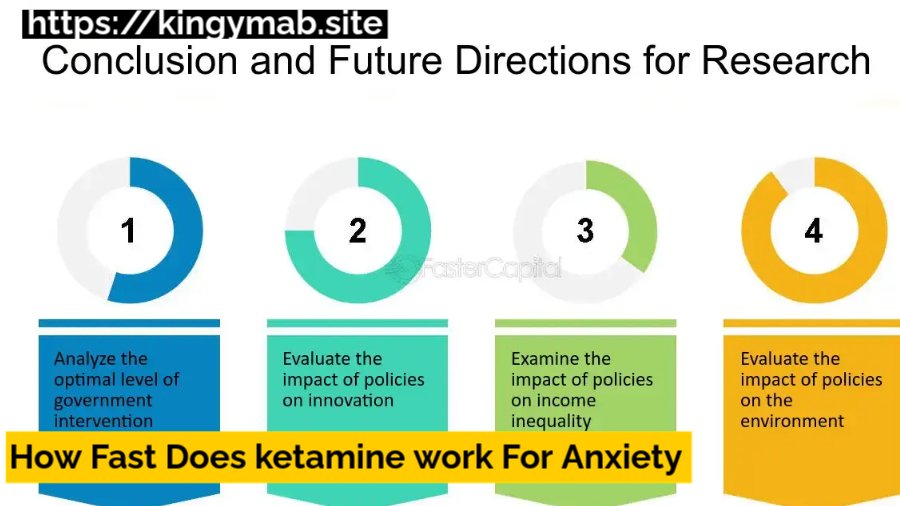Ketamine is gaining attention as a treatment for anxiety, especially for those who haven’t found relief with traditional therapies. I wanted to explore how fast does ketamine work for anxiety and what that means for effective treatment options.
Known for its rapid onset, ketamine shows promise in acute anxiety cases, with research backing its efficacy. This article covers its potential impact on treatment.
Key Points
Quick Effect: Ketamine injections can take hours or even days to begin working.
How it Works: NMDA receptor antagonism and neurotransmitter imbalances are among the possible causes.
How Long Does the Effect Last: Reduced symptoms can last from a few hours to days after the treatment.
Patient Perspectives: Many patients respond positively very few improvements early on in the course of treatment.
Patient Safety: Expected adverse effects and the requirement for professional oversight.

Ketamine Explanation
Why don’t we first give and explain some ketamine history first. Initially, it was designed to be a surgical anesthetic, now it is becoming widely accepted or used for depression. It’s as if for anxiety or depression, this medicine has a new usefulness and is even more helpful for patients.
• Was first administer as an anesthetic.
• Now it concerning unto mental health se i.e depression.
Mechanism of Action
Mechanism of Action And how such is the case is what I find most interesting. While studying ketamine, I found its mechanism of action to be fascinating. Now that’s because it inhibits the NMDA receptor which is crucial in controlling the level of glutamate in the brain. And such modulation can actually create rapid changes in the mood and the anxiety symptoms, which is rather amazing!
• Blockade of NMDA receptors.
• Level of modulation of glutamate, dopamine and serotonin.
Speed of Action
What I have found especially interesting is the rate at which ketamine can act up. I note how many people say that they feel some changes in their tone within an hour or perhaps a bit more and that is striking. Variables such as the person’s condition, their body biology and its receptors can all influence the results. And that is the difference with conventional medications such as SSRIs which may take weeks to be effective.
Treatment: Time to effect
| Treatment | Time to Effect |
| Ketamine | 30 minutes to 1 hour |
| SSRIs | Several weeks |
| Other Anxiolytics | Varies, often longer |
• Many people may notice changes from one hour post administration of the medication.
• In comparison with SSRIs and other anxiolytics.
Duration of Effects
However, after taking the treatment, the major concern I have is how long the positive effects will be effective thanks to the ketamine. Typically, this relief can take between several hours and even a week or so. Naturally, this can differ depending on patient characteristics and amounts that are given to them.
• In various forms, up to a week, the effects last for several hours.
• Variability associated with the individual response and dosage intake.
Dosage and Administration
Ketamine can be administered in a number of ways which have consequences on the onset of effects. Personally, I find the different methods interesting! Intravenous (IV) infusions are the standard in clinical situations but intramuscular (IM) injections and nasal sprays like esketamine also qualify.
• Intra-venous (IV) infusions versus Intra-muscular (IM) injections versus nasal spray.
• Typical dosages utilized for clinical studies are around 0.5mg/kg and above.
Efficacy in Specific Anxiety Disorders
Research shows that ketamine has a broad-spectrum efficacy in multiple anxiety disorders including GAD, SAD and PTSD. Clinical trials have been successful with some showing persistence and fast release from symptoms.
Generalized Anxiety Disorder (GAD)
Social Anxiety Disorder (SAD)
Post Traumatic Stress Disorder (PTSD)

Patient Experiences
It is always interesting to hear from those that have been treated with ketamine. Most patients say they feel quite calm or very anxious just after their sessions! But still, the only and balance can be different for different individuals. Therefore, one always remembers in considering the treatments.
• Testimonial regarding rapid relief and overall satisfaction.
• One more mention about inter individual variability.
Risks and Side Effects
To some extent, ketamine treatment can also be associated with side effects. Most frequently mentioned are nausea and dizziness, as well as some acute dissociative phenomena. Such occurrences should be stressed and managed by providers to enhance safety in the course of the process.
• Short-term effects: dizziness, nausea, and dissociation.
• A special type of monitoring by healthcare professionals is also necessary.
Long term Thoughts
Whereas ketamine provides great promise to bring about swift effects, there’s a need for more evidence on its use over time. There are worries concerning the possibility of addiction, hence there are such studies being done to make it clearer.
• Looking for other induction agents, and maximally studying what dose, frequency, and time the combined therapy should activate the treatment program.
Future Directions in Research
Promising clinical results obtained in the study of ketamine therapy leave a sense of optimism about its future! Scientists are working on how to deliver it more efficiently and use it in conjunction with psychotherapy, so that the results are even better. This would be a breakthrough towards more focused strategies for patients with anxiety disorder.
• Use of multi-dose and combination therapy with psychotherapy in the future.

FAQs
How long does it take for ketamine to treat the anxiety?
In fact, anxiety symptoms can be significantly reduced through ketamine treatment within minutes after being administered. Many such patients would expect to be relieved from anxiety about 30 minutes to one hour post treatment.
Are there any side effects connected with ketamine?
Common symptoms include blurred vision, nausea, dizziness, and temporary feelings of depersonalization or derealization. Most side effects are mild and of short duration, but should still be followed up by the patient’s doctor.
Is ketamine effective for the management of anxiety?
Currently, there is no indication from the FDA that ketamine can be used to treat anxiety but there are instances where it can be prescribed even with no evidence of efficacy.
Ketamine treatment for patients with chronic pain
With regards to chronic pain, I have this understanding that the standard initial dosage of ketamine for IV use is about 0.5 mg per kg of body weight. How well a patient responds to ketamine infusion varies from person to another, therefore, my physician modifies the dose based on my feedback and pain tolerance levels.
How long does the effect of ketamine last in treating depression?
From my perspective, alksetamine seems to be a really quick treatment for depression which can show results within the first few hours after administration of the infusion. The duration is affected by how frequently I get the treatment and my response, but typically, the effects last several days to several weeks.
When can we expect a ketamine infusion for pain to be scheduled next trip?
In terms of my case, I usually have a ketamine infusion for chronic pain once a week, or once in two weeks. I have discussed matters regarding my care with my healthcare provider and at some intervals I might have to alter the frequency of the infusion after briefing the baseline health objectives and the plan of treatment.
Injectables for nerve pain management – Ketamine therapy
As far as I know, estimating ketamine on basis of my experience, it is actually very useful for treatment of nerve pain. Its mechanism is on blocking some receptors in the brain and this is what helps me most whenever other pain-relieving drugs fail. It is particularly helpful for conditions such as complex regional pain syndrome (CRPS) or fibromyalgia.
How many minutes does it take for ketamine infusion to work?
This is one of the qualities I can willingly commend near-injection ketamine. In most cases, I require about 15 minutes to notice that the drug has worn off before noticing its effects. What is surprising and overwhelming for me is the fact that in such cases, like in instances of depression, acute pain, or stress, it does not take long to begin seeing improvements.
How does ketamine treat chronic pain?
In my case, I realize how potent ketamine for the treatment of chronic pain is. It reduces the pain signaling pathways as it antagonizes the NMDA receptors of the brain. This is quite useful in breaking the cyclic nature of chronic pain, which in my case I have had difficulty finding comfort in other modalities.
How many ketamine infusions for chronic pain?
I have been informed that the number of ketamine infusions I might require when treating chronic pain has a high variance. As a rule of thumb, I may commence on three to six infusions but then my physician and I will talk over maintenance interventions according to the results yielded by me in the treatment.
Is ketamine an opioid?
Just to be sure, I need to dispel the myth that ketamine is an opioid; in fact, it’s a dissociative anesthetic. I’m glad that there are localized effects mostly at the NMDA receptors in my brain. This incredible action means it could be a good way of helping treat the pain without me getting addicted as it may happen with opioids.
Conclusion.
This has made ketamine a valid option for quick relief of anxiety symptoms and especially in patients who are treatment resistant. Its ability to act fast provides a great advantage to those who are undergoing acute anxiety.
Summarize the relatively short duration and immediate action of ketamine on anxiety symptoms.
Explain the need for expert counselling during the management of the condition.
Present further studies that may support the applicability of ketamine for the treatment of chronic anxiety.
Contact Us for Guest post submission





